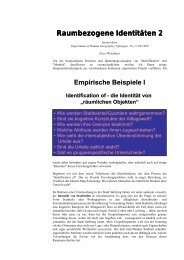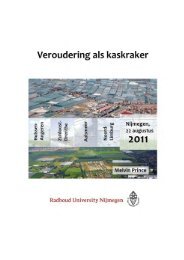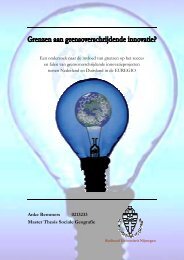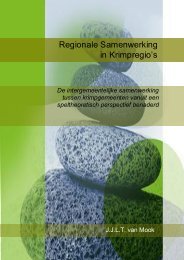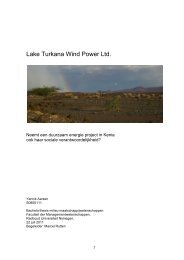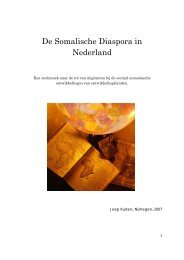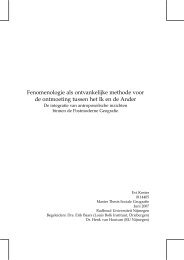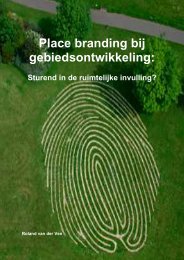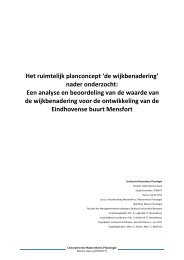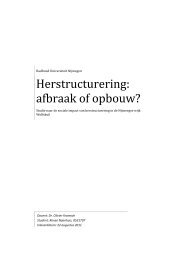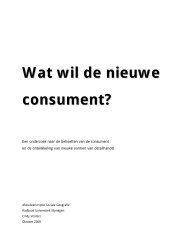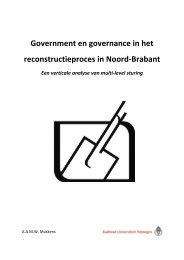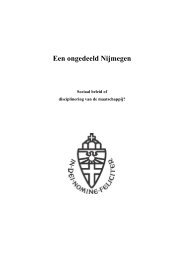Trading with the enemy in Mitrovica, Kosovo. - RUhosting
Trading with the enemy in Mitrovica, Kosovo. - RUhosting
Trading with the enemy in Mitrovica, Kosovo. - RUhosting
You also want an ePaper? Increase the reach of your titles
YUMPU automatically turns print PDFs into web optimized ePapers that Google loves.
surprised by <strong>the</strong> Albanian hospitality, <strong>the</strong> honour <strong>the</strong>y treat him <strong>with</strong> and <strong>the</strong>ir efforts to speak English or<br />
Serbian <strong>with</strong> him. Respondent #1 had a comparable experience <strong>with</strong> Serbs. He got a job work<strong>in</strong>g for a NGO<br />
<strong>in</strong> 2000 and had to work <strong>with</strong> Serbs for <strong>the</strong> first time. He felt like a traitor and refused to speak Serbian <strong>with</strong><br />
<strong>the</strong>m despite his ability to speak <strong>the</strong> language fluently. He chose to speak English <strong>with</strong> <strong>the</strong>m <strong>in</strong>stead. His<br />
views on Serbs changed when he had to work <strong>with</strong> <strong>the</strong>m, and also really fast: he went out for dr<strong>in</strong>ks <strong>with</strong> his<br />
Serbian colleagues and after this he was 'ok' <strong>with</strong> <strong>the</strong>m. After this he also started speak<strong>in</strong>g Serbian aga<strong>in</strong>. It<br />
broke <strong>the</strong> stereotypes and made him see <strong>the</strong>y were just like him. He believes that <strong>with</strong><strong>in</strong> <strong>the</strong> Albanian society<br />
<strong>in</strong> <strong>Kosovo</strong> this stereotype about Serbs is created, and kept <strong>in</strong>tact because of lack of contact (respondent #1).<br />
It must be said that <strong>the</strong>se examples could be called 'success stories'. There are also many examples of people<br />
engag<strong>in</strong>g <strong>in</strong> contact across ethnic group l<strong>in</strong>es but not chang<strong>in</strong>g <strong>the</strong>ir attitudes or stereotypes. Many people<br />
even keep <strong>the</strong>ir <strong>in</strong>correct view based on stereotypes when confronted <strong>with</strong> contrast<strong>in</strong>g <strong>in</strong>formation (field<br />
notes). Ano<strong>the</strong>r problem is that <strong>in</strong> most cases people only engage for a certa<strong>in</strong> short amount of time <strong>in</strong> <strong>in</strong>terethnic<br />
contact, such as <strong>in</strong> dialogue programs. After this contact ends <strong>the</strong>y return to <strong>the</strong>ir own community and<br />
under <strong>in</strong>fluence of <strong>the</strong> reign<strong>in</strong>g stereotypes <strong>the</strong>re quickly revert back to <strong>the</strong>ir old views (CARE, 2006).<br />
Surpris<strong>in</strong>gly, Both <strong>the</strong> Albanians and Serbs who do have good relations <strong>with</strong> <strong>the</strong> o<strong>the</strong>r ethnic group stated <strong>the</strong><br />
exact same reasons for this. The words were almost always <strong>the</strong> same “<strong>the</strong>re are good and bad people<br />
everywhere” (field notes, respondent #5 & #10). Some put it <strong>in</strong> o<strong>the</strong>r words: “I don't judge people based on<br />
ethnicity”(respondent #2), or “everyone should be judged as an <strong>in</strong>dividual and not as a group” (respondent<br />
#2 & #4). Still, even after many years of <strong>in</strong>ter-ethnic friendships many are sceptical. One Albanian who had<br />
worked <strong>with</strong> Serbs for <strong>the</strong> past 10 years and considers many of <strong>the</strong>m to be his friends summarises his attitude<br />
towards <strong>the</strong>m <strong>in</strong> one sentence. "I don’t love <strong>the</strong>m but I don’t hate <strong>the</strong>m. I would never marry a Serb"<br />
(respondent #1). A Serb from <strong>Mitrovica</strong> tells me more or less <strong>the</strong> same, he adds that his Albanian colleagues<br />
understand <strong>the</strong> Serbian situation very well, and <strong>the</strong>y make good jokes toge<strong>the</strong>r on a national level, mean<strong>in</strong>g<br />
<strong>Kosovo</strong>/Serbia/Yugoslavia. But he believes this is an exception and not representative for <strong>the</strong> rest of <strong>the</strong><br />
population. Because people who work <strong>in</strong> NGOs are higher educated and more open m<strong>in</strong>ded <strong>in</strong> general to<br />
beg<strong>in</strong> <strong>with</strong> he says. He does not believe good <strong>in</strong>ter-ethnic relations would be possible <strong>in</strong> countryside<br />
(respondent #2).<br />
The respondents who were just discussed are very positive examples of <strong>in</strong>ter-ethnic relations, among <strong>the</strong><br />
most positive I have encountered. Not everyone shares <strong>the</strong>ir enthusiasm. Respondent #16, a Serb from<br />
<strong>Mitrovica</strong> North who works <strong>with</strong> Albanians daily stresses <strong>with</strong> quite some emotion that <strong>in</strong>ter-ethnicity or <strong>the</strong><br />
multicultural society does not exist. “Never <strong>in</strong> <strong>Kosovo</strong>, for <strong>the</strong> past 50 years Serbs and Albanians have<br />
always lived segregated. Albanians and Serbs are too different to ever be friends”. Later he mentions that<br />
<strong>the</strong>re are also some good <strong>in</strong>ter-ethnic relations as he tells about an Albanian friend of his who comes to him if<br />
he's <strong>in</strong> trouble. Then he adds that his op<strong>in</strong>ion about Albanians has changed a bit. Quickly he adds to that:<br />
55



